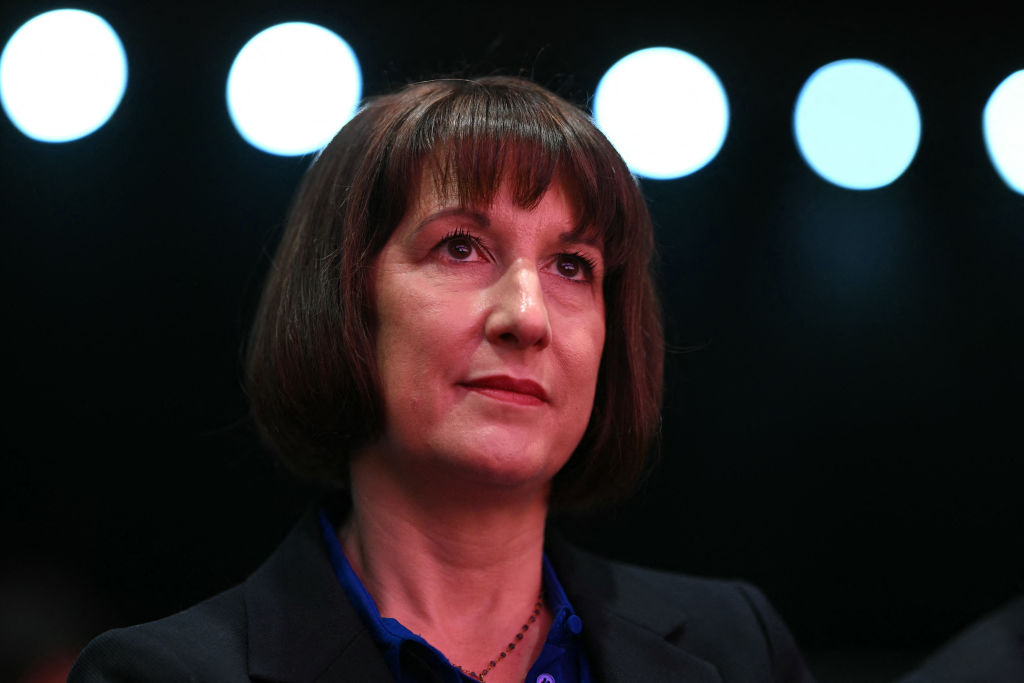It wasn’t an aggrieved business leader, facing a sharply increased wage bill thanks to the Budget, that led the 8 a.m. news bulletin on Radio 4 this morning, but the reassuring verdict of the IMF. ‘We support the envisaged reduction in the deficit over the medium term, including by sustainably raising revenue,’ the body declared. It rather seemed as if the BBC was trying to tell us: never mind the carping from the Tories and other enemies of the government; here is a highly respected, disinterested body of wise men and women telling us that Rachel Reeves’s Budget was great.
To be fair, Nick Robinson did give the Chancellor a proper grilling a few minutes later, taking in Labour’s broken promises on National Insurance and many other things, but does the IMF really deserve to be elevated into the position of delivering the ultimate, defining judgment on the Budget? Let’s just have a look at its record in recent years. In January last year it confidently predicted that Britain would be the only major economy to suffer a shrinking economy in 2023 as the effects of Brexit continued to make their mark. In the event, the UK economy managed to keep its head above water last year; it was instead Germany that suffered a drawn-out recession, its economy suffering a 0.3 per cent slump over the year.
In 2016, in a view endorsed by the entire board, the IMF declared that Brexit would ‘do severe regional and global damage by disrupting established trading relationships’. A year later it was forced to upgrade its lowly forecasts for UK economic growth in 2017, admitting that the UK had by that stage become the fastest-growing major economy in the world. Last week it had to upgrade its forecast for the UK again this year, in what was described as a boost for Rachel Reeves, but which was really just yet another episode in a long series of having to correct excessively negative predictions for the UK.
Is the IMF biased towards Labour? It wouldn’t be a surprise, given the tendency of supra-national bodies to conform to a soft-left vision of the world. On the other hand, the IMF famously has a bit of previous with Labour chancellors, in the form of Denis Healey’s visit in 1976 to beg it for a bailout (this from an organisation which was created principally to help economic stability and growth in the developing world).
Whatever the inner political views of the IMF board, its faith in Reeves’s Budget to restore the UK public finances does seem a little misplaced. There are serious question marks over the ability of some of the Chancellor’s tax rises to raise significant – still less sustainable – revenue. Reeves, for example, expects £900 million to flow into the government’s coffers in 2028–29 thanks to the 3 per cent rise in the Energy Profits Levy. That revenue will only be realised, of course, if oil companies continue to commit to the North Sea. With an effective tax rate now of 78 per cent, together with falling oil prices, that is highly uncertain. Likewise, VAT on private school fees – no one really knows how many pupils will be withdrawn from these schools as a result. Jacking up employers’ National Insurance Contributions will certainly bring in a large quantity of extra revenue, but not necessarily quite as much as envisaged if it leads to less employment.
Our own Office for Budget Responsibility (OBR) sees lower growth and slightly higher interest rates as a result of Reeves’s budget. Has that entered the IMF’s reckoning? Moreover, Reeves’s plan to balance the books by the middle of this parliament relies on fiddling with the rules on current and investment spending. Take the latter into account and she has no chance whatsoever of balancing the books, given how much she is planning to splurge on the NHS and other public services. The IMF’s intervention is certainly politically helpful to Reeves, but not for the first time it may yet be forced to retract its judgment on Britain.








Comments